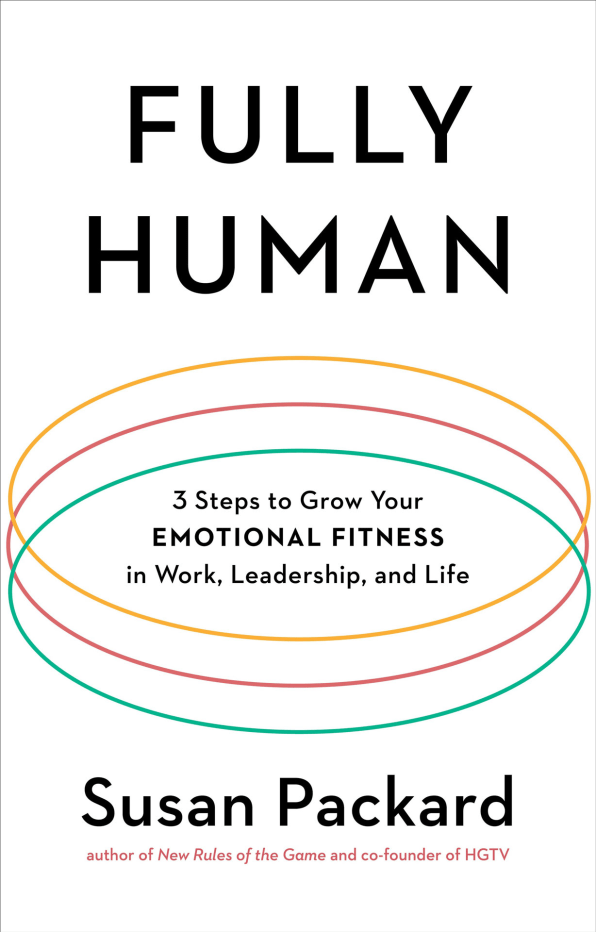Raise your hand if you are thinking of changing careers! Or maybe you are in the midst of it, but something is holding you back. Whatever the case, you are not alone. Many people who want to change careers get stuck along the way.

Let’s look at some of the most common obstacles career changers face, whether before or during their career transition, and how you can overcome each one of them.
1. Focusing on What You Lack
This has to be mentioned right at the top — almost everyone I talk to who is thinking of changing careers but feels stuck is focusing on all the things they do not know how to do, or on all the resources they don’t have. This is completely backward — no one hires you based on what you do not know or have. The only things that matter are what you do know, what you have already accomplished and what you are interested in learning. Focus on what you can alreadycontribute to any profession and you’ll find yourself much more empowered in your career journey.
2. Not Knowing What You Want
Do you feel confident you can get whatever you want… except you don’t know what that is? If this sounds familiar when it comes to your career transition, dig deep: is it really true that you don’t know what you want? In my experience most people know what they want, but might not know what it looks like in a job. For example, you might know you would be happy working from home and writing, but you are not sure what kind of job would pay you to do just that. If this is you, stop saying you don’t know what you want and instead address the real question, which is that you are not sure what career could give you what you want. Or it might be that you know what you want, but are so afraid you wouldn’t succeed that you don’t let yourself admit that’s what you want. In that case your issue is fear, not lack of clarity.
If you really don’t know what you want, take this moment in time as an opportunity to try anything that feels interesting. Have fun exploring, and you’ll discover in the process what feels best. (Hint: you will not find the answer in your head — you need to get out and in action!)
Like this Article ? Share It ! You now can easily enjoy/follow/share Today our Award Winning Articles/Blogs with Now Over 2.5 Million Growing Participates Worldwide in our various Social Media formats below:
FSC LinkedIn Network: www.linkedin.com/in/fscnetwork
Facebook: http://www.facebook.com/pages/First-Sun-Consulting-LLC-Outplacement-Services/213542315355343?sk=wall
Google+: https://plus.google.com/115673713231115398101/posts?hl=en
Twitter: Follow us @ firstsunllc
Question: Want the ‘the best/current articles/blogs on the web’ on Job Search, Resume, Advancing/Changing your Career, or simply Managing People?
Answer: Simply go to our FSC Career Blog below & type(#career, #leadership, #life) in Blog Search: https://www.firstsun.com/fsc-career-blog/
What Skill Sets do You have to be ‘Sharpened’ ?
Continue of article:
3. Lack of Information
In my work helping people change careers I often hear about different jobs… and sometimes encounter professions I didn’t even know existed! The truth is that you were probably exposed to only a few possible career options while growing up, and don’t know much about a wide variety of professions. Add the fact that technological innovation is creating many more opportunities that didn’t even exist just a few years ago, and chances are there are at least a few options that could be a good match for you, but you’ve never heard of. Most career changers don’t have enough information to make an informed decision — this is why you need to research and test possible professions and business ideas to gain real knowledge of what they are really like before committing to a new career.
4. Money Worries
We all know the drill: you should have at least 6 months of savings, no debt, a full-time job or at least a steady part-time income… in other words, you should be in a strong financial position before embarking on a career change. If you are, and you still feel stressed over money, keep reading for more tips on how to overcome fear. Focus on doing the work, and as long as you keep your financial acumen you’ll be fine.
If you are one of the 65 percent of Americans without significant savings, or one of the 48 percent of Americans who carry credit card debt or belong to the estimated 33 percent of college graduates who are underemployed, this is for you: I get it. I know it’s scary, and I know changing careers for you comes with added obstacles. Here’s the deal, though — you can’t afford more of the same exactly because it’s not working financially. Feeling worried or anxious about your finances will not help you — in fact, it will probably make it harder for you to make good decisions. Only your actions matter: learn to negotiate, say No to extra work that is underpaid or, if you are unemployed, volunteer and take on any type of work you are interested in rather than staying at home (it will also help you with your resume). Meet people, network, apply to jobs, start a side business. If you are already working like crazy and still struggling, commit to just a few hours each week to dedicate to your career transition. Do not let the lack of money stop you — instead, use it as powerful fire to light up your search for a new career. You can’t afford not to.
5. Unhealed Trauma
I personally think this is the big elephant in the room — the one thing we don’t talk about when discussing career-related issues. And we should. Our past, if not properly dealt with, can have an immense impact on how we relate to others. So how does unhealed trauma affect your career change? When you embark on any transition, including a career change, you are very likely to face rejection and failure — and these can be tough for everyone, but if you carry a lot of weight from the past, a negative experience can feel much worse once unhealed trauma is triggered. This is why it is so important to deal with your past. Treat your career change as part of a wider process of healing and start working with a therapist or healing professional of your choice right away. Your deep healing will help you better weather the ups and downs of your career change, and will expand your life beyond what you think is possible. Your desire to change careers could be part of a deeper calling to finally let go of what has been holding you back — so you can finally soar.
6. Lack of Role Models
Some of us are lucky enough to have knowledgeable and supportive family members, or maybe we had a cool teacher in the past or a boss who believed in us. Sometimes, though, that doesn’t happen, or the people who cheer us have no knowledge of the field we want to enter. If that’s the case, you need to go out and expand your network. This can mean finding someone who “officially” becomes your mentor (check out SCORE) or meeting people who are further ahead in your chosen career and learning from them through your interactions, deep conversations and rapport. I also recommend joining a group that is all about empowering its members. For example, there are many groups that support women in technology: by joining one, attending events and networking, you can find a lot of helpful information and resources to help you enter a new field. And through those interactions, you might also end up meeting a wonderful mentor or role model in a more traditional sense of the word.
7. Analysis Paralysis
This has got to be my favorite one, as I used to be a chronic sufferer from the condition! Some of us tend to get stuck trying to figure out every single step from now until we retire in our head. And of course, as each step comes with imaginary catastrophes, a lack of real information and often fear, we never feel we can make a decision, let alone know enough to take action. Argh! Here’s the good news: this approach doesn’t work. Once you realize that it’s impossible to plan your entire career change in your head, you will finally give yourself permission to take one step at a time. What is the next thing you know you need to do in order to move forward? Focus on that. And trust that as you take that one step, you will be able to see the next, and then the next and so forth until you can reach your destination.
8. You Think the Past Is a Preview of What’s to Come
Just because every boss you had so far was unsupportive, it doesn’t mean that your next boss will be; just because you have always made little money, it doesn’t mean you will always be underpaid. We don’t know what the future has in store for us, but the good news is you can always work towards a different outcome. Bad bosses? I bet you can now spot the early signs! Underpaid? Use that as motivation to say ‘No’ to positions that pay too little and to move into a career or industry that pays what you need, learn to negotiate, update your skills, etc. Acknowledge what happened in the past, learn from it and then focus on what you want moving forward. Give the future a chance!
9. Trying to fit in
“I should be more open, I should go to more networking events, I am too much of an introvert, people like me don’t usually…” Stop right there! I am all for self-improvement, but there is a difference between wanting to grow as a person and imagining everyone else is better than you. Chances are, you already have all if not most of what you need to succeed: embrace who you are. Love yourself, focus on what you enjoy doing and are naturally good at, have fun learning new skills and getting out of your comfort zone, but do not think you need to be like someone else in order to be fulfilled in your career. You will be able to live a fulfilled life, including in your career, when you accept yourself as you are. From that place, you will become more open to new opportunities, flexible on the things you can be flexible about and someone people will want to be around. Trust me: Once you stop trying to fit in, you will find a career that is a good fit for you.
10. Don’t Make It All About Yourself
Last, but not least, it’s not just about you. In fact, the more you make it about you, the more insecure and stressed you will feel. Who do you want to serve? What lights you up? What difference do you want to make? These questions don’t have to have world-changing answers to motivate you: You can choose a career to provide your family with a stable environment, or you can commit to creating a business that offers employees great health insurance from day one because you believe in providing such benefits. There is no “small” purpose: Focus on the why, and you will find you have in you more courage and resilience than you ever thought possible.
Author: Aurora Meneghello is a Los Angeles-based career coach and the founder ofRepurpose Your Purpose. She works with groups and individuals who want to change careers.
GlassDoor.com | March 7, 2019









 After an injury prevented Lewis Howes from continuing to play professional football, he became a New York Timesbestselling author and lifestyle entrepreneur—with a podcast aimed at sharing “inspiring stories from the most brilliant business minds, world-class athletes and influential celebrities on the planet to help you find out what makes great people great,” according to
After an injury prevented Lewis Howes from continuing to play professional football, he became a New York Timesbestselling author and lifestyle entrepreneur—with a podcast aimed at sharing “inspiring stories from the most brilliant business minds, world-class athletes and influential celebrities on the planet to help you find out what makes great people great,” according to  Ready for a change in your career—a new job, or even a new career path? If so, the Pivot podcast is for you. On the podcast, host Jenny Blake, the author of Pivot: The Only Move That Matters Is Your Next One and former Google career coach, inspires you to find “opportunity in unexpected places through practical tips and tools,” according to the
Ready for a change in your career—a new job, or even a new career path? If so, the Pivot podcast is for you. On the podcast, host Jenny Blake, the author of Pivot: The Only Move That Matters Is Your Next One and former Google career coach, inspires you to find “opportunity in unexpected places through practical tips and tools,” according to the  The Accidental Creative tackles topics and asks questions we can all relate to: Is it always wrong to copy? What are the common factors of change-makers? Why do we put pressure on ourselves to always be successful? No matter where you are in your career, you will find something on Accidental Creative, hosted by Todd Henry, that will speak directly to you.
The Accidental Creative tackles topics and asks questions we can all relate to: Is it always wrong to copy? What are the common factors of change-makers? Why do we put pressure on ourselves to always be successful? No matter where you are in your career, you will find something on Accidental Creative, hosted by Todd Henry, that will speak directly to you. We all run into sticky situations at the office. How do we navigate them? Safe for Work has the answer. Hosts Liz Dolan and Rico Gagliano “give advice on everything from how to avoid burnout on the job to how to fake an illness when you’re calling in sick,” according to the
We all run into sticky situations at the office. How do we navigate them? Safe for Work has the answer. Hosts Liz Dolan and Rico Gagliano “give advice on everything from how to avoid burnout on the job to how to fake an illness when you’re calling in sick,” according to the  Side Hustle School is “a daily show for everyone who works a regular job and wants to start an income-earning project on the side,” according to the
Side Hustle School is “a daily show for everyone who works a regular job and wants to start an income-earning project on the side,” according to the  Whether you’re a boss or would simply like to lead your team to success, Lead to Win can help you do that. The podcast provides “actionable insights to help you win at work, succeed at life, and lead with confidence,” according to the
Whether you’re a boss or would simply like to lead your team to success, Lead to Win can help you do that. The podcast provides “actionable insights to help you win at work, succeed at life, and lead with confidence,” according to the  Calling all freelancers and entrepreneurs! When you work for yourself, a whole unique host of questions and problems can present themselves. But Being Boss can help. With episodes such as “Self-Limiting Beliefs and Goal Setting” and “Build a Community for Your Business,” the podcast and its hosts Emily Thompson and Kathleen Shannon “dig into the mindset, habits, routines, and boundaries that help you make money doing what you love,” the
Calling all freelancers and entrepreneurs! When you work for yourself, a whole unique host of questions and problems can present themselves. But Being Boss can help. With episodes such as “Self-Limiting Beliefs and Goal Setting” and “Build a Community for Your Business,” the podcast and its hosts Emily Thompson and Kathleen Shannon “dig into the mindset, habits, routines, and boundaries that help you make money doing what you love,” the  “Angie Lee is your hilarious and wicked smart business bestie you’ve always wanted,”
“Angie Lee is your hilarious and wicked smart business bestie you’ve always wanted,”  Manager Tools podcast will help you become a better boss by tackling topics such as how to make a good hire, how to prepare for performance reviews, and even office politics. As the
Manager Tools podcast will help you become a better boss by tackling topics such as how to make a good hire, how to prepare for performance reviews, and even office politics. As the  Downloaded more than 2,500 times per day, it’s safe to say CareerCloud is a popular career podcast. With guests that range from resume writers, to career coaches and recruiters, and covering topics from resumes to interviewing, job resources, and leveraging social media in your job hunt, there truly is something for every employee and entrepreneur in this podcast.
Downloaded more than 2,500 times per day, it’s safe to say CareerCloud is a popular career podcast. With guests that range from resume writers, to career coaches and recruiters, and covering topics from resumes to interviewing, job resources, and leveraging social media in your job hunt, there truly is something for every employee and entrepreneur in this podcast.